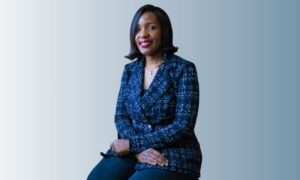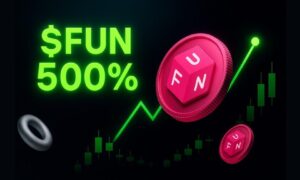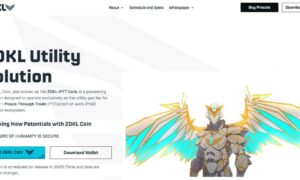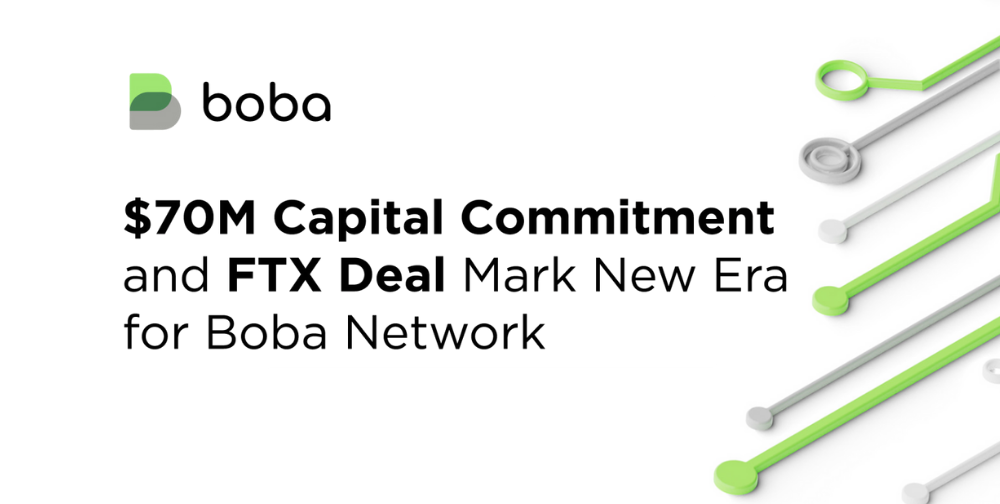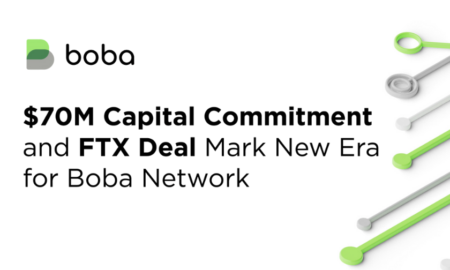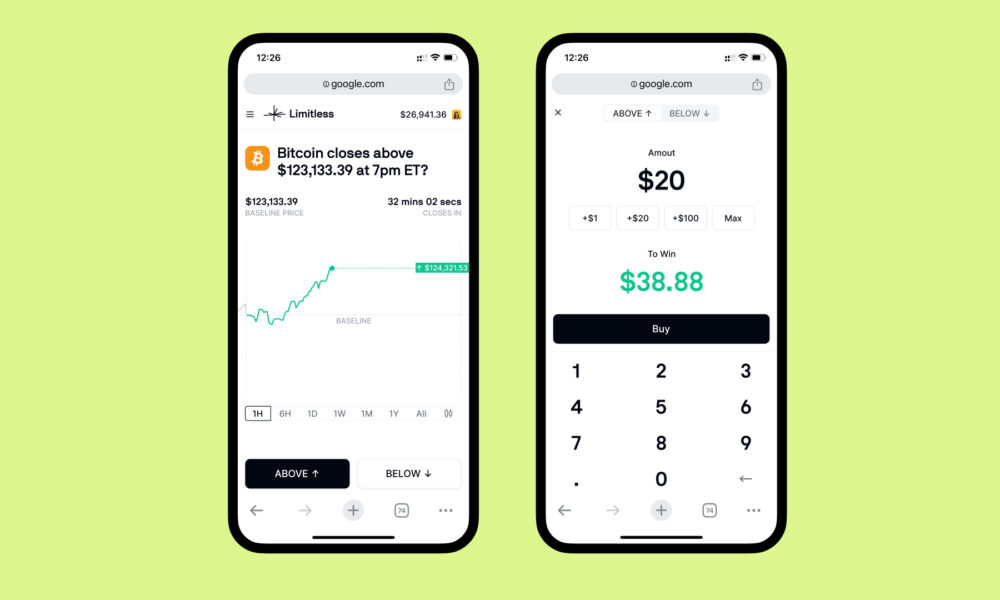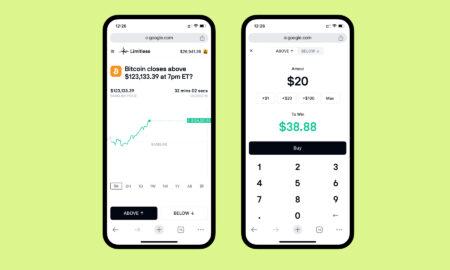John Iadeluca is the Founder and CEO of Banz Capital Digital Asset Fund, LP, a multi-strategy hedge fund that engages exclusively in the cryptocurrency and blockchain/digital markets. Last year, Techbullion interviewed John Iadeluca when he was 20 years old and preparing to launch Banz Capital. With Banz since being launched, Iadeluca, now 21, has become one of the youngest Wall Street CEOs; but he’s made it clear he won’t allow his age to excuse lackluster management.
In this interview, John will describe the services Banz Capital offers as well as his thoughts and predictions for the future cryptocurrency and blockchain markets.
To start off please tell us your name and about yourself.
I’m John Iadeluca, I’m the Founder and CEO of Banz Capital. I’m from Rutherford, New Jersey and I’m 21. I started programming at age 11 and started trading virtual forex and stock markets at 12. I’ve always had a passion for both technology and Wall Street, so I’ve always wanted to create something that combines both. When I was growing up I saw the stock market as the place where people came to create wealth, and at the same time I was seeing the whole world start to shift towards using technology, so the idea that money, companies, and ‘wealth’ would eventually rely on technology always hooked me.
I used to trade stocks and options in between classes in high school which is how I got a real understanding for markets, with real money, not virtual. I did pretty well and then I started off with cryptocurrencies and developing with blockchain, trying to combine the two. When I switched over, everything was intuitive and profitable for my market style. I ended up publishing an article early in the crypto-craze on how I turned a $600 into $15,000 in a few months and it started getting a lot of traction, so I situated in those markets.
What is Banz Capital? Who can officially invest and what are your prices or fees?
Banz Capital is a multi-strategy hedge fund that participates exclusively in cryptocurrency and blockchain-focused areas. Investors can make investments in Banz to which their investments are managed, allocated, and protected almost by the Banz team. Banz retains a 2% yearly fee on investments as well as a fee of 20-30% of the profit generated for investors based on their investment factors. We utilize code-centric methods as well as traditional valuation strategies in the finance and cryptocurrency markets with an application to big data to produce alpha for investors. This means a blend of discretionary and automatic strategies, combining quant or algo trading, and value-focused or psychological investment strategy.
Banz Capital can accept accredited investors. Accredited investor status, according to SEC mandate, is someone who makes over $200,000 per year or is worth over $1 million. These are just the laws right now. Many people get offended about that, but Banz doesn’t have control over it.
In Banz Capital, approximately 75% of AUM is towards existing-market and established cryptocurrencies and assets where liquidity is less of a stressor for our intended investment sizes. The remaining 25% is appointed to early-stage and more high-yield illiquid cryptocurrencies, for example a $10,000 investment in Binance in 2017 as an early-stage investor would now be worth around $1.2 million. That’s in 2 years, and its value has continued pushing. This separation is especially important for Banz Capital’s allocation as I believe it enables the highest possible risk-adjusted returns for investors.
You say you use a part of ‘value-focused’ and ‘psychological’ investing. Can you explain this? How would you use this personally with cryptocurrencies?
With many of these companies and cryptocurrencies, in many cases they still have financials, expenses, revenues, in theory they’d be able to both a book value as well as a trade value, obviously based very differently than traditional assets. Static ‘value investing’ is a paradigm, it’s not always exact otherwise everyone would always make money off of it, there would be no competition. With digital assets and the like, you have different parameters that can be used to calculate an interpretation of intrinsic value. If a blockchain’s network fees are redistributed to holders and fees are reduced, their profit might decrease, but possibly at the cost of more network transactions. For example, J.P. Morgan uses the production cost of 1 Bitcoin to calculate an interpreted intrinsic value. While alone it might not always be a perfect investment strategy for digital assets, it can be applied to investment decisions. I personally don’t believe 100% value-investing is perfect, so that’s where I feel psychological standpoints are important.
I used to trade options and I was obsessed with John Maynard Keynes’ ‘castle-in-the-air’ financial theory. It was a way of looking at the markets without sugarcoating anything, it said 99% of the money in the markets was only buying assets because they believed someone else would buy it for a higher price in the future. Keynes’ believed a stock’s psychology was infinitely more important than it’s fundamentals or technicals. He said that if you knew how a crowd worked and knew how they moved ahead of time, that’s all that mattered. With digital assets, I’ve found the most personal success in applying both.
For example, in 2017 and 2018, there were hundreds of assets driven by psychological and speculative nature as opposed to intrinsic value, but in being driven majority by speculation, investments still made a lot of people long-lasting riches. It’s about how you come to these conclusions. You ask questions like, ‘What quantitative methods can I use to figure out what the crowd reacts to? What information is driving price? How much of this asset is reliant on intrinsic value as opposed to speculation so I can make the most confident investment each way?’ The hedge fund Point72 is a big inspiration for me in this regard because of their uniqueness. They use credit data, satellite information, all these otherwise outlandish concepts to gain an edge in understanding an asset, it inspired me.
Would you consider the Cryptocurrency market still promising?
I think it’s a similar question to asking in the early 2000s when the dotcom bubble deflated, or in 2008 when securities collapsed, ‘Is the stock market still promising?’ Some stocks will prove promising, while some will fizzle out into nothing. In 2017 crypto investors were getting rich overnight for no reason other than speculation really. That speculation won’t hold up the same in this market. I see a direct parallel to the recovery markets of dotcom or 1960 ‘growth’ stocks and crypto. On the way up in these markets, the primary factor driving wealth is just irrational speculation supported by jaw dropping returns. Just by adding ‘Electronics’ to your name in the 60s or adding ‘Blockchain’ in 2017, your company price immediately skyrocketed. Markets crashed, people had a wakeup call, but from the ashes emerged some of the most profitable and sturdy stocks the world has ever seen. It was a clearing of all the destructive practice that was in the markets. Cryptocurrency’s 2017 and 2018 is the same thing, it’s more about actuality, core and consistent value proposition, which is why I’m excited about the markets, people are .
Plus, reports are showing there’s big money entering in these markets which is a positive but what I think is more important is the reports on venture and startup capital that entered the market behind the scenes at the bottom of the market. It was an all time high. The growth rate of venture capital in cryptocurrency multiplied to break records within a few months after crypto tanked. That translates to billions of dollars and top-tier VC firms believing in the 5+ year growth of crypto and blockchain. And Fortune 500 companies have just now started to move into the market. There are billions of dollars pouring into this market behind the scenes, I’d say follow it. I believe when it comes to markets, if you follow the money, the answer is usually there, and right now big money is pointing towards a ‘promising’ future.
You are currently 21 years old. How challenging has it been to start and run a hedge fund at such a young age? What’s the process been like?
There’s been a lot of challenges and it’s of course high pressure, but I love the pressure, I don’t think anything worthwhile comes without being put under a lot of pressure first. You find things that push you through. There were a few people who told me I was their role model, and that’s crazy to me. Things like that give me a boost of confidence when I need it, to know people are looking up to me or are inspired by me. I think things like that make challenges worth it.
What should investors expect from the current market?
Investors can expect investing and trading cryptocurrencies to be harder than it was before. This is for the better, though. Investors should expect things to be a lot different from 2017 and ‘18, and your investment won’t make you rich overnight for no reason. During that time, no matter how good or bad the company, a flash of good news meant asset price would skyrocket. In today’s market though, investors should understand things are a bit different. In ‘17-’18, prices were thriving on majority speculation, with little adherence to actual value, or technical proposition like whether or not an asset was fundamentally better than ‘Ethereum’ or ‘TRON’, not just because someone in a group chat said it was. Investors can expect the markets to now be the opposite. Successful investments are now seemingly based on majority analysis, unique strategy, and placement, not empty promises. In other words, the markets can now tell when a company is bluffing.
From this market as a whole regarding prices, investors can definitely expect volatility in the short-term 1-6 month perspective. There’s a lot of catalysts driving that. The ICE, who owns the New York Stock Exchange, launched BTC futures contracts through ‘Bakkt’ this week which is going to add institutional capital, as well as give them the ability for institutions to short cryptocurrencies. There’s also upcoming SEC Bitcoin ETF decisions after their most recent widespread statements.
You mentioned big money entering; Hundred-billion dollar companies like Facebook have shifted into the market to meet much controversy. What are your thoughts?
I think anything that makes strides of this size is bound to cause controversy. I’d be worried if it didn’t. I think it’s good that people are asking questions and looking for solutions. Generally though, maintaining or combatting controversy is not Banz Capital’s job. While we might advocate for certain outcomes, our responsibility is to ensure the efficiency, compliance, and security of what we do, while optimizing our investment management.
What is ‘quant’ trading?
Quantitative or ‘quant’ Trading is a strategy using a lot of math, and parameters alongside programming, which is one component of Banz Capital’s portfolio. When I traded stocks & options, I had the core of the asset, its price, the financials, volume and you work off of that, but with digital markets, it enabled a lot more creativity. You can supplement your quant strategies with a lot more. Blockchain companies have financial information to base investment decisions on, but then they also have unique technologies or parameters underneath them, transaction limits, development frameworks, all things that can directly affect price.
I feel like Banz has been portrayed through media recently such as Forbes as being a full quant strategy fund, however, Banz Capital is truly a multi-strategy fund with an allocation to quant and algo trading that can be increased or decreased depending on the strategy’s performance.
What sort of things do you see Banz Capital doing in the future?
I see us branching out, expanding. Banz has a few strategic partnerships in the works that I can’t wait to speak on. The music industry is one of the things I see us getting involved with next too. I was in a meeting a few weeks ago and we were spitballing music platform concepts, and the ideas were genius. The music landscape is opportunistic right now in terms of streaming, live shows, bookings, artistry, and so on. There’s a ton of distributed music platforms but none have truly succeeded just yet.
There’s even a few electronic dance music artists that have already started attempting to innovate the industry, like ‘3LAU’ and his ‘Our Music Festival’ project, I think that idea completely changes how ticket sales, concert going, and communities work while also cutting expenses and increasing profit. You have prominent names like Big Sean, and Zedd, all on this network, it gives me a ton of ideas for Banz.
Otherwise, I see Banz Capital building itself to become a driving force in the cryptocurrency & blockchain, and eventually, legacy financial markets. When people hear I’m 21 they’ll be like ‘Is this just something you want to add on your resume,’ but it’s not, I’ve built this with the ambition to attain a Goldman Sachs-level, where Banz operates in hundreds of sectors. It sounds crazy, but that’s how I see it. We’ve already started providing blockchain software development to external firms as well, which is a step in the right direction.
How Safe is Banz and what guarantees and legal covers and formations should investors expect from Banz Capital?
Compliance and safety is pivotal for Banz Capital. It’s something we have allocated countless time and resources to. For starters, our selected fund administration has completed its SOC-1 audit and has administered over $1 billion for hedge funds. With this administration as well, we’re able to guarantee investor portal logins as well as manual investment reports for accredited investors in Banz Capital. You don’t need to wait 2-3 months just to see your investment’s performance.
Hacks are a big deal in these markets. Efficient cryptocurrency safety and security requires multiple parties working together. Banz has chosen Gemini, a qualified custodian and fiduciary under New York Banking Law, to be primary custodian for Banz Capital on supported cryptocurrencies. Gemini’s Custody is insured via Aon Insurance, the London insurance giant, which helps us give investors the investment reliance that’s imperative in this type of market where hacks are frequent. We’re also finalizing an additional layer of firm-wide security insurance as an additional precaution, which will hopefully be fully set up by the end of this week.
As far as compliance, I can’t stress it enough. Maybe it’s because I’m 21, but I didn’t take any chances, especially with the formation of the fund. I spent over 6-8 months working with consultants to ensure the concept for formation and structure was compliant to its max capacity. Then I hired our current legal counsel founded by John Lore, for the full fund formation and filing. Additional consultancy, compliance and structure incurred continuous expenses, but I felt there was no other way to solidify a platform where I’d be able to build this into the monumental firm I wanted. It was worth the wait.
What advice would you give someone struggling to start or launch a company/project?
The struggling and how you handle it is what can make or break your success. When you struggle, you fail, and when you fail, you get a choice to either let those failures consume your ambition or to use those failures to become a stronger, smarter company-lead. Remember your mistakes and failures, build yourself up from them. I’d also say blandly, don’t give up, as you’ll undergo a lot of setbacks. I’ve thought I was at absolute rock-bottom before, where I’ve felt almost hopeless, but I kept my head up, I kept the faith in what I knew I could do and I overcame each setback, which you can do as well. I don’t know the exact answer to success because I honestly still haven’t reached it fully myself, I’m still learning a lot too, but I know nobody has ever succeeded by not believing in their vision. Be patient with it all, everyone’s process is different and everyone’s timeline varies.


